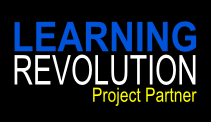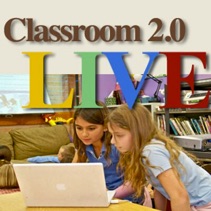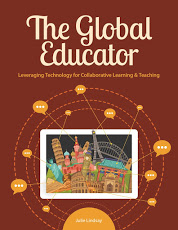Presenter: Gail Desler & Natalie Bernasconi
Location: Placerville, California USA (Gail) & Salinas, California USA (Natalie)
Twitter: @gaildesler & @nbernasconi
Presentation Description: We’d like to invite you – whether you are a classroom teacher, a parent, an administrator, or a policy maker – into this international conversation on why digital citizenship is an essential part of a 21st century skill set. And if you are a newcomer to digital learning, we’d like to provide a window into how other teachers are integrating digital citizenship issues into lessons they are already teaching. By the end of our session, you will come away with a ready-for-Monday road map to create or ramp up digital citizenship education at your individual sites.
Referenced Links:
http://digital-id.wikispaces.com








Compelling case for teaching Digital Citizenship, fantastic resource for how to teach and clear instructions about how to get started. Thank you for all your great work!
Pingback: Tech Ed-dy » K12 Online Conference 2012: Notes
I love how your “roadmap” idea and how to help teachers make inroads with bringing this important issue of “the golden threads of digital citizenship” into the classroom in a meaningful, inquiry-based way.
I know Gail calls it a “moral imperative” to teach this (and I would agree) but I wonder how to answer teachers who say this type of learning around technology should be taught at home, not at school, and that if they (teachers) are barely understanding the importance of digital footprints, how can they help their students?
(I know you address this but it will likely remain an issue for many teachers).
Great job, Natalie and Gail!
Kevin
Thanks, Kyle and Kevin, for your kind responses.
Kevin, in answer to the teachers who argue that the ethical use of technology should be taught at home, although that would be ideal, it is too rarely happening. With cell phones, for instance, kids do not want to risk losing their cell phone privileges, so even if they are on the receiving end of a cyberbullying incident, many are reluctant to tell a parent. With the daily dramas around “sexting” (which can be incredibly disruptive to the school day), I haven’t had a parent yet say they were aware that that was one of the ways their child was choosing to use his/her cell phone.
With so many resources available for teaching about digital citizenship, starting with the Common Sense Media selection, the time involved to pull together a site-wide plan can be minimal. An elementary site in my district promoted an anti-bullying/cyberbullying campaign last spring. We interviewed a few 4th, 5th, and 6th graders who were happy to share their thoughts – http://www.secctv.org/video/content/egusd/safety/isafety-psa1-cyberbullying-640×360.mov. I’ve had very similar conversations with middle and high school students. I want teachers to realize how essential they are in initiating the shared conversations that empower students to stand up and speak out.
Somehow a simple district policy on how students post to the Internet for school projects seems to carry a message for students, teachers, and parents on the importance of building and maintaining a positive digital footprint: elementary students post with first name only (rather that Student 1, Student 2, so that they take ownership early for what they’ve posted); middle school students post with first name + last initial; high school students post with full name (creating a strong digital footprint/e-Portfolio – and, if they’ve made some poor posting choices in the past, at least balancing out the negative footprint) – with the hope that every student, college or career bound, will “google well” .
It truly does take a village to promote digital citizenship, with teachers playing a key role.
Pingback: BlogWalker - #UnfollowBullying – Recognizing the Power of Student-Created Content